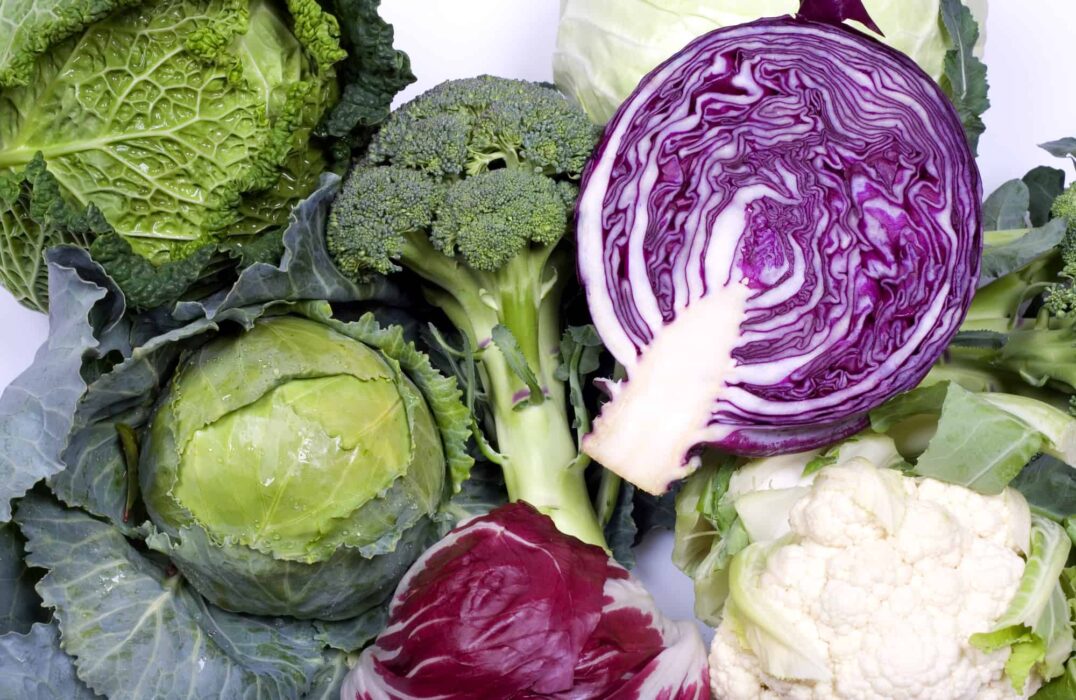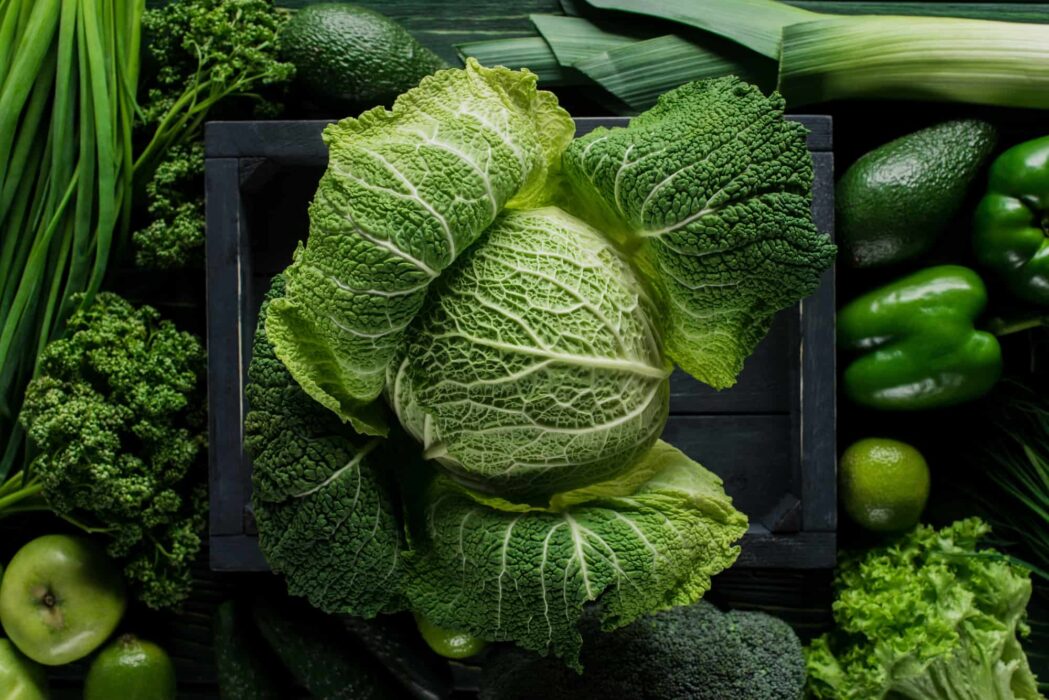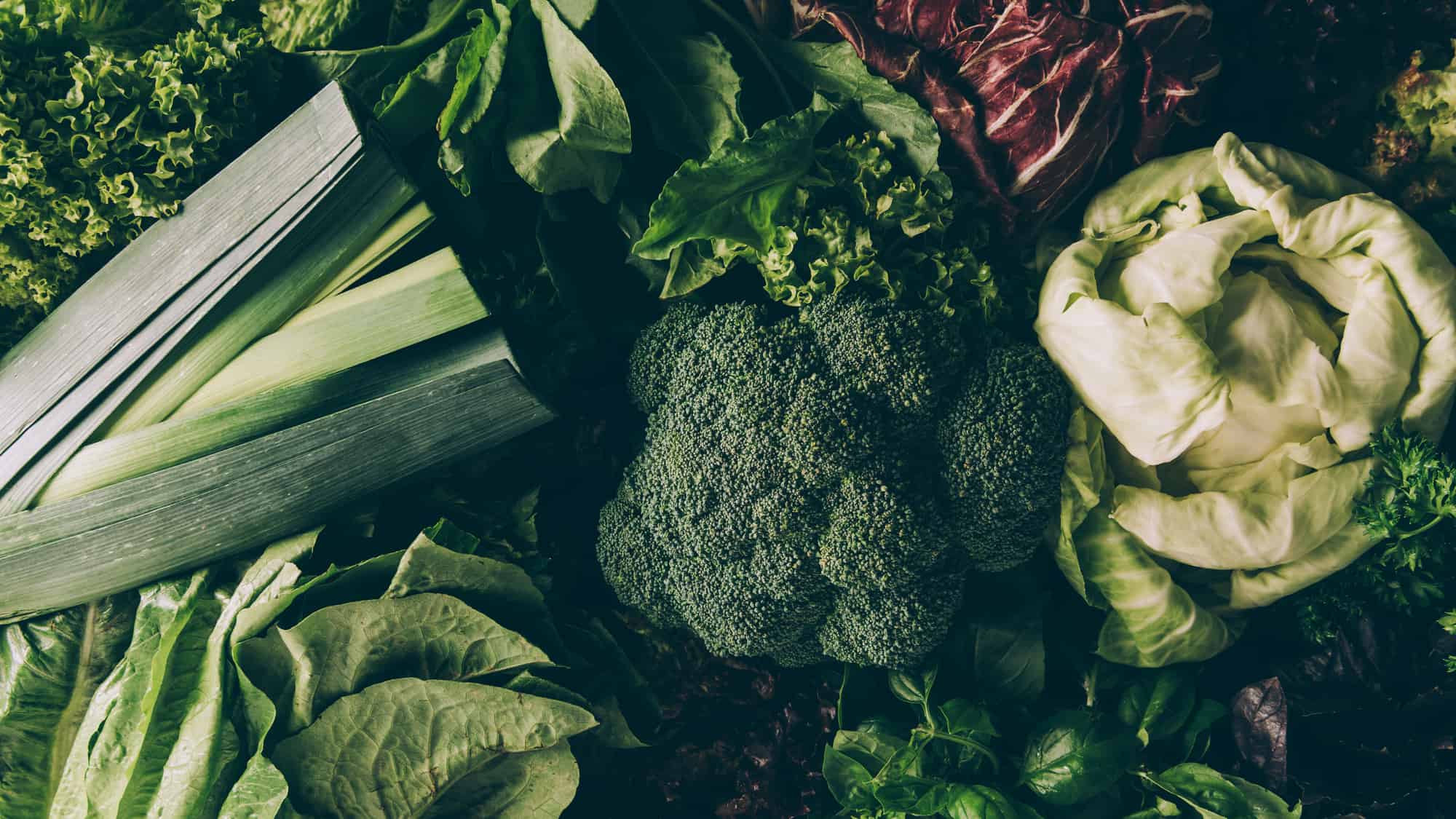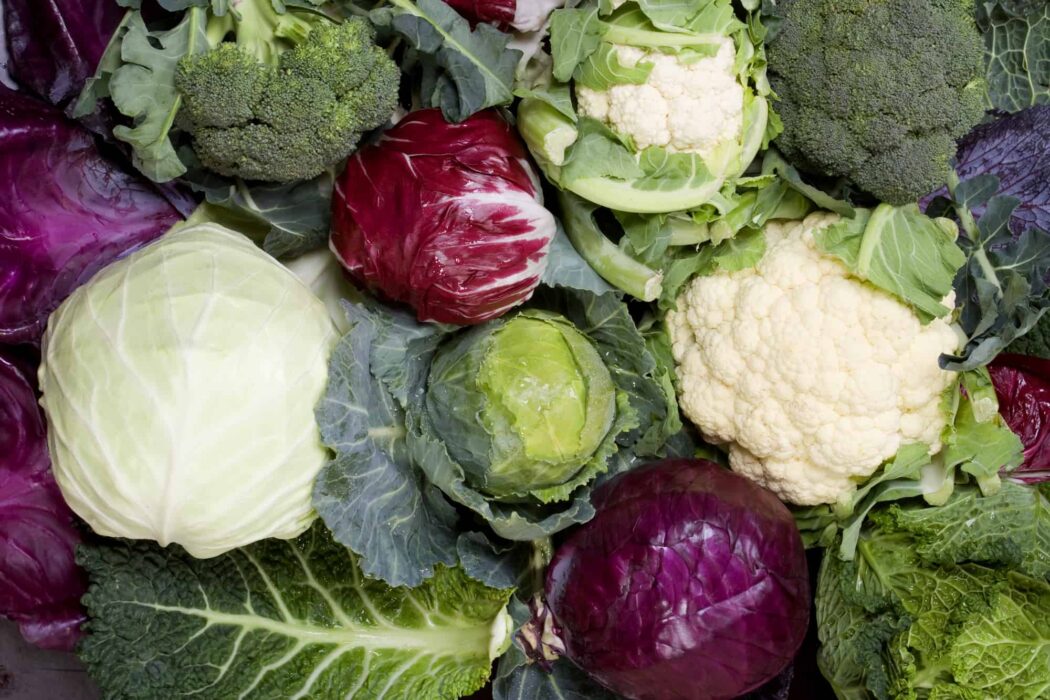We’ve already discussed that 5% of the carbs in your keto diet should come from green vegetables. But if everything is pretty clear with spinach and broccoli, then some vegetables may raise additional questions for you. These include the cruciferous family, in particular cabbage. Is cabbage keto?
In short, yes. Cabbage is one of the best vegetables for the keto diet. Thanks to its low carbohydrate content and high amounts of beneficial fiber, cabbage is the perfect complement to your keto diet. You can safely eat all varieties of cabbage without worrying about the number of carbohydrates. It will provide you with many nutrients and fill the deficiencies that can occur on a ketogenic diet.

So, what types of cabbage can you eat on a low-carb diet, and in what amount? Do types of cabbage differ in the number of carbohydrates? What are the benefits of cabbage for your keto diet? Let’s take a closer look at the answers to all of these questions together!
Is Cabbage Keto?
Cabbage is part of the cruciferous vegetable family. The most common is green cabbage, although there are other representatives in this family.
When raw, cabbage has a crunchy texture and a hint of pepper. It doesn’t have a strong flavor, so it is a popular ingredient in many keto recipes. It is used to prepare various salads, soups, and also as a side dish.
Cabbage comes in many varieties, with unique macros and health benefits. The most common are:
- Green cabbage
- Bok Choy
- Red cabbage
- Savoy cabbage
- Napa cabbage
- Kale
- Brussels Sprouts
Carbs Content in Different Types of Cabbage
For example, green cabbage contains about 27 calories for every 100 grams. These calories are composed of:
- 5 g of carbohydrates
- 3 g net carbs
- 2 g fiber
- 2 g fat
- 4 g protein
Red cabbage is less tender than green cabbage because it takes longer to ripen. Be careful when cooking purple cabbage in tap water or any alkaline liquids, as these will turn the red and purple colors of the cabbage into a light blue. However, add lemon juice to the cabbage, and it will return to its original color.
One glass of shredded red cabbage contains a total of 22 calories, which consists of:
- 5 g of carbohydrates
- 3 g net carbs
- 7 g fiber
- 1 g fat
- 1 g protein
Savoy cabbage is similar to green cabbage, but its leaves have a richer green color and a slightly crisper texture.
It contains a total of 19 calories per glass, and its macronutrients look like this:
- 3 g of carbohydrates
- 1 g net carbs
- 2 g fiber
- 1 g fat
- 4 g protein
Napa cabbage has a more yellow color and a softer aroma. One glass contains 13 calories, which consist of:
- 1 g of carbohydrates
- 1 g net carbs
- 2 g fiber
- 1 g fat
- 4 g protein
Even if you carefully track all your carbs and worry about it, remember that one serving of any cabbage contains no more than 5 g of carbs and about 3 g of net carbs, so it will let you stay in ketosis.

Benefits of Cabbage
Cabbage contains several key vitamins and minerals, including vitamin C. It is an antioxidant that plays an important role in the proper functioning of the immune system.
Cabbage is also a rich source of vitamin K. It is a fat-soluble vitamin, so your body will absorb it faster with other sources of healthy fats like olive or coconut oil. Vitamin K is a key player in bone health, blood clotting prevention, healthy brain function, and proper metabolism, and it may even help fight cancer.
Is Corn Keto: Main Reasons to Avoid It during Weight Loss
Along with vitamins C and K, cabbage and other cruciferous vegetables are abundant in folic acid, vitamin E, and many trace minerals. In addition, cabbage is high in phytonutrients – nutrients that protect plants and give them color and aroma. For example, phytonutrients in red cabbage, such as sulforaphane, make this vegetable a powerful anti-inflammatory agent.
Let’s take a closer look at the benefits of cabbage on the keto diet.
Strong Digestive System
Fresh cabbage contains a rare vitamin U, which has an anti-ulcer effect. This microelement is not synthesized in the body, but, getting into it, it regenerates the gastric mucosa and normalizes its microflora, acting like natural probiotics on keto. Moreover, by suppressing Helicobacter bacteria, it protects against ulcers and removes bile acids from the intestines.
Healthy Kidneys
Due to a large number of potassium salts in cabbage, it can remove excess fluid from the body. Therefore, this vegetable is recommended for people who suffer from kidney problems and gallstone disease.
Weight Loss
You can often find cabbage among the ingredients of various diets, both medicinal – for people with gastrointestinal diseases and for those who want to lose weight. Choline in its composition leads to the normalization of fat metabolism, fiber – to clean intestines, and regular bowel movements.
Modern medicine recommends including cabbage in the diet of overweight people to improve metabolism because the tartronic acid inhibits the conversion of carbohydrates into fats.
Clean Body
Cabbage contains various organic acids and many amino acids, including lysine, which can dissolve external proteins that have entered the human blood. It also contains other valuable chemical compounds, many of which have a detrimental effect on intestinal bacteria and other pathogenic microbes.
Healthy Vessels
A large amount of fiber has a beneficial effect on the gastrointestinal tract. It promotes the elimination of cholesterol from the body, which is especially important in preventing atherosclerosis and cardiovascular diseases.

Reducing the Risk of Cancer
A study at the Francis Crick Institute (UK) proved that cabbage contains special chemicals (for example, indole-3-carbinol, 3,3-diindolylmethane) that block malignant cells responsible for developing many types of cancer. Among them is cancer of the rectum and colon, breast, lungs, and bladder.
Strong Immune System
Cabbage has a unique chemical composition. It has a daily intake of vitamin C, thiamine, riboflavin, folic acid, alpha-tocopherol, and niacin. Cabbage contains many micronutrients such as potassium, calcium, magnesium, sodium, sulfur, phosphorus, chlorine, and trace elements – iron, manganese, zinc, aluminum, boron, copper, nickel, and fluorine. All of these substances have beneficial effects on the immune system, overall health, and well-being.
The high phosphorus content in the cabbage on keto regulates the acid-base balance. The micronutrients supplied in abundance protect tissues and fluids from acidification, which contributes to an increase in resistance to infectious diseases and systemic pathologies.
Vigorous Nervous System
Zinc and magnesium in cabbage take part in the regulation of brain activity and the strengthening of nerve fibers. It is directly involved in the synthesis of some hormones and neurotransmitters. One of them is serotonin – the hormone of happiness, which provides us with a great mood, and positive emotions. It, in turn, determines the psychological status, reduces depressive disorders, and increases resistance to stress.
Healthy Eyes
The necessary zinc content in cabbage ensures good vision. It happens due to the participation of this trace element in the metabolism of nerve fibers, the synthesis of neurotransmitters, and the normal functioning of the macula. Zinc maintains visual acuity and prevents myopia.
Full Body Renewal
Vitamin C, which is found in large quantities in cabbage, is involved in synthesizing collagen, which is necessary for the skin, ligaments, bones, tendons, and blood vessels. As a result, it strengthens the walls of blood vessels, promotes wound healing, and prevents inflammation.
Protecting Cells from Oxidation
Vitamin E in cabbage is a powerful antioxidant, a substance that protects cells from the damaging effects of oxygen. At the same time, it protects cell membranes more effectively than other antioxidants.
As an antioxidant, vitamin E strengthens the immune system, protects body cells from premature aging, reduces inflammation, and decreases the risk of developing diseases associated with oxidative stress – cataracts, arthritis, tumors, Alzheimer’s disease, hypertension, and vascular disease.

Conclusion
As you can see, cabbage has such a rich composition of vitamins and elements that their beneficial properties cannot be fully listed. However, an unambiguous conclusion can be made. Cabbage is good for your body both on a keto diet and on any other type of diet.
Cabbage will fill you up on a keto diet, aid digestion, and won’t disrupt your ketosis. So feel free to add different types of this vegetable to your meals and enjoy various recipes!